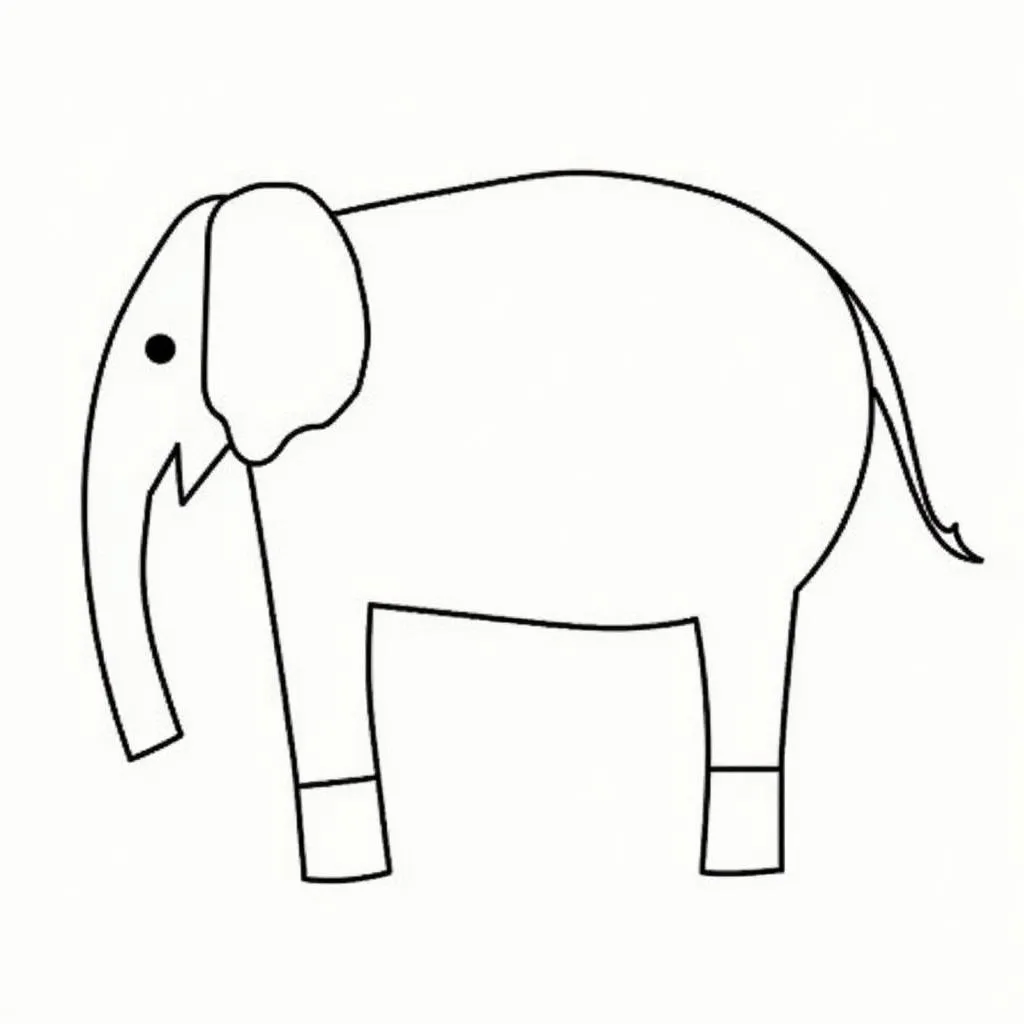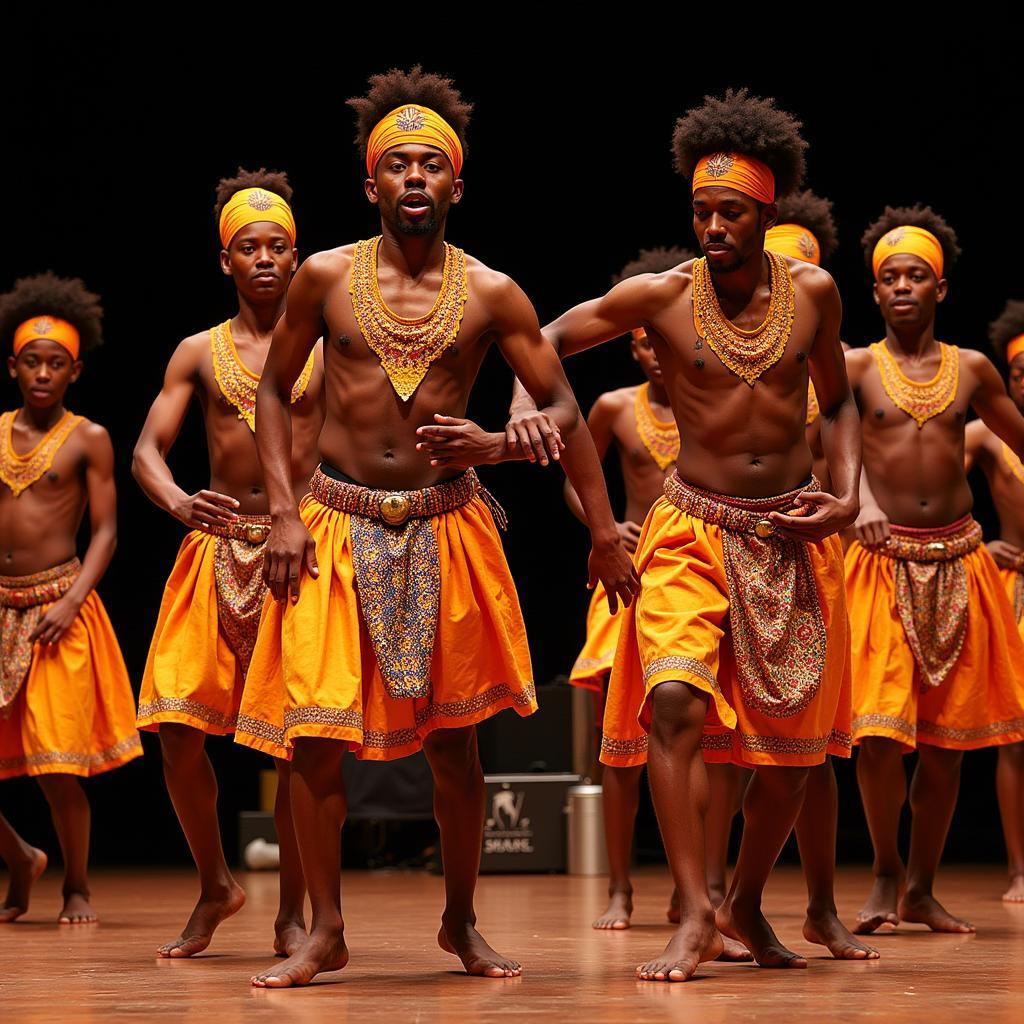Exploring the World of African Masks
African Masks are more than just decorative objects; they are powerful symbols of culture, spirituality, and tradition deeply embedded within various African societies. From elaborate headdresses to small, hand-held masks, each piece tells a story, connecting the wearer to the spiritual realm and their ancestors. See easy african masks for some examples.
The Significance of African Masks in Ritual and Ceremony
Across the diverse continent of Africa, masks hold profound meaning, serving as vital components in rituals, ceremonies, and social events. They are not merely static artifacts but active participants in cultural expression. Traditional african masks have been used for centuries in these contexts. Masks are often used to represent spirits, deities, ancestors, or even abstract concepts like power and wisdom. In some cultures, specific masks are designated for certain ceremonies, such as initiations, funerals, or harvest festivals. The wearer of the mask transcends their individual identity and embodies the spirit or being represented, facilitating communication between the human and spiritual worlds.
The power of African masks lies not only in their visual representation but also in the rituals and performances associated with them. These performances often involve music, dance, and storytelling, creating a vibrant and immersive experience that strengthens community bonds and reinforces cultural values.
The Artistry and Craftsmanship of African Masks
Crafting an African mask is a meticulous process passed down through generations. Skilled artisans, often holding esteemed positions within their communities, employ traditional techniques and materials to create these intricate pieces. Wood is the most common material, although other materials like bronze, ivory, terracotta, and raffia are also used. The choice of material often holds symbolic meaning, adding another layer of significance to the mask. Learn more about the different kinds of african masks images.
The intricate details carved into each mask, from the stylized features to the elaborate headdresses, reflect the unique artistic style of the specific region or tribe. Painting and embellishments further enhance the masks, adding vibrant colors and textures that heighten their visual impact.
What are the common questions about African masks?
One might ask, how are African masks used? They are used in a variety of contexts, including rituals, ceremonies, performances, and storytelling. Their purpose is often to connect the wearer to the spiritual world and embody a particular spirit or ancestor.
Another common question is what do African masks represent? They often depict spirits, deities, ancestors, and abstract concepts like power, wisdom, and fertility. The specific meaning of a mask can vary depending on the culture and context in which it is used. See some examples of simple african masks.
African Masks: A Legacy of Cultural Heritage
African masks continue to hold a powerful presence in contemporary African societies, representing a rich legacy of cultural heritage. They are not simply relics of the past but dynamic expressions of identity and tradition that continue to evolve and adapt to changing times. 20 facts about african masks will give you a deeper understanding. Preserving and understanding the significance of African masks is crucial for appreciating the depth and complexity of African cultures.
In conclusion, African masks are much more than just artistic objects; they are vibrant expressions of culture, spirituality, and tradition that have played a crucial role in African societies for centuries. From their use in rituals and ceremonies to the intricate artistry and craftsmanship involved in their creation, African masks offer a powerful glimpse into the rich heritage of the African continent.
FAQ
- What materials are African masks made of?
- What is the significance of masks in African culture?
- How are African masks used in ceremonies?
- Who makes African masks?
- Where can I see African masks?
- How can I learn more about the history of African masks?
- Are there different types of African masks?
For support, contact us 24/7: Phone: +255768904061, Email: kaka.mag@gmail.com, or visit us at Mbarali DC Mawindi, Kangaga, Tanzania.

